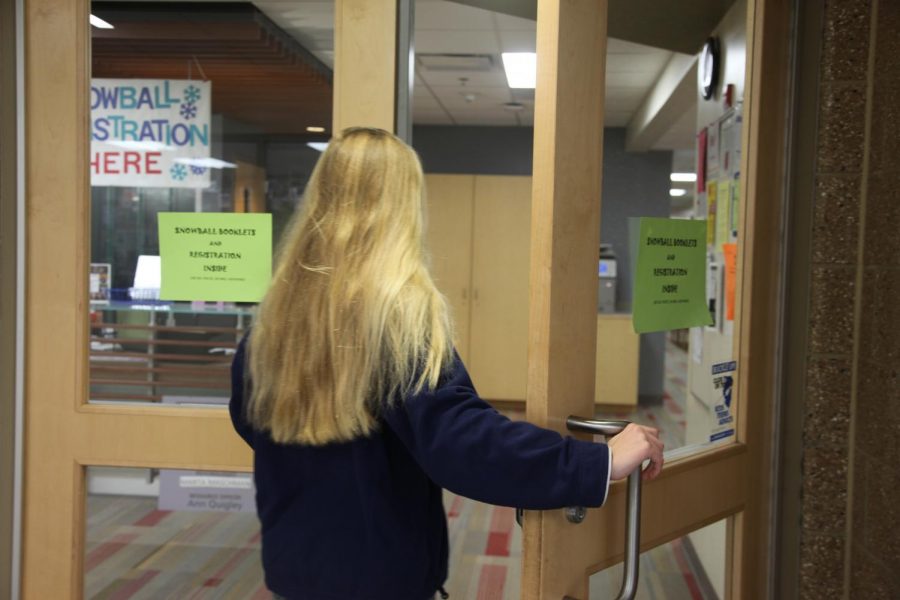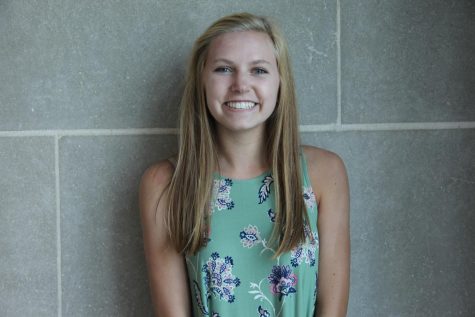A Call for help
Whether it be a meeting with a dean or planning with a counselor for the post-high school years, all students will visit Student Services during their years at Central. In addition to helping with academic issues, Student Services also provides help for social and emotional wellness as well. Since Student Services plays a significant role in students’ lives, the Central Times investigated how effectively Student Services does its main job: serving the students.
March 25, 2018
Editorial Note: Student source names have been changed by the Central Times in order to protect their identities. All names that were altered are marked with an asterisk (*).
According to the Association for Children’s Mental Health, one out of every five children has some type of mental disorder and of these, 80 percent do not receive the help they need. While the national average of high school graduation is 76 percent, students with mental disorders only have a graduation rate of 40 percent.
In order to provide support for students with mental disorders, Central has a resource for students to use called Student Services.
“The overall purpose of Student Services is to support students academically, socially/emotionally, behaviorally, anything that can support or deal with the things that get in the way of their education,” said Karen Lemanski, Director of Student Services.
To meet students’ needs, there are four teams in Student Services, separated alphabetically by students’ last names. Each team includes four counselors, one social worker and one dean. In addition, there is one psychologist for each half of the alphabet.
In order to see someone on their team, students must book an appointment through the secretary who books for the specific person they are trying to see. Although appointments aren’t gauged on immediacy completely if a student requests to see someone immediately there is a process a student can follow to receive the help they need.
When students request help, they can choose between the four different positions to suit their needs. Although the titles may seem similar, each position serves a different purpose.
The counselor on the team focuses more on course selection and college/career planning. In addition, if a student has an issue interfering with their schoolwork, they may go and see their counselor to help with that issue. A social worker focuses entirely on the social/emotional health of students. They deal with students who have ongoing
social/emotional issues and need ongoing support. These individuals run support groups for students who have different types of issues. They also work with students who have individualized education programs (IEPs) and whose IEPs
include social/emotional issues.
A psychologist is considered a learning specialist. When students struggle academically, psychologists work with the student to problem solve. They also determine when a student qualifies for an IEP. A dean is considered an administrator. They primarily work with students with behavioral issues, but since they are considered an administrator, they work to help build a positive climate in the school.
If the person a student requests is unavailable, they are then allowed to see a worker on a different team or can choose to see a different member of their own team. If all of the people the student needs to see are unavailable, there is always one person on-call to try and meet the student’s requests.
In order to meet the increasing demands of student requests for mental issue-related help, Student Services created a program in January that would require one person from the department to be on-call at all times for immediate attention.
Secretary Pamela Ford appreciates the new on-call policy as it helps her find students help as soon as they need it.
“If there is an immediate need and no one is immediately available, it can be a little difficult [to book an appointment],”
Ford said. “That’s why we changed our system.”
In addition to the new on-call policy, Student Services added a new position five years ago to their team, Dean of Student Interventions. In order to support students better, Merigan Neben, the Dean of Student Interventions, assists students who have experienced extended hospitalizations in transitioning back to school.
“Our district is very sensitive to the increasing mental health needs of kids and is constantly looking for ways to
meet those needs,” Lemanski said.
Senior Kimberly Tuft* believes the ratio of student services staff to students is not enough.
“[There are] not enough social workers,” Tuft said. “It’s understandable, they have to focus on students who are actively suicidal ,but then the kids who are in the middle who are still struggling, but maybe not as much, get caught in the middle and overlooked and kind of thrown under the rug.”
Tuft has had trouble turning to student services in the past because she feels as if her needs are inadequate compared to others. In regards to student’s complaints, Ford believes students should voice their frustrations.
“I’d be welcome to people thoughts and what they are frustrated with,” Ford said.
While some students have had difficulty with student services in the past, their help for students is appreciated
throughout the building.
Social studies teacher Michael Wilson has seen the benefits of Student Services.
“I probably don’t know 90% of what they do,” Wilson said. “But the 10% interaction that I have had with them, they’ve been really helpful for students that are most at risk with various issues.”
The Central Times created a survey that allowed students to share their experiences with Student Services. Here are some responses:
“…She wasn’t listening in a very dangerous situation.”
Junior Maddy Moffitt* refuses to use Student Services’ help after a bad experience her sophomore year. Moffitt ex-
plained her experience to the Central Times in detail:
“I decided to go to Student Services because I was very suicidal,” Moffitt said. “I had a lot of plans in my head, and I
had a bag packed because I thought I was going to run away. I couldn’t go to my therapist because I was in the middle
of school so I decided to go to my social worker. My social worker was in a meeting and so they asked if I was ok with
talking to my counselor, so I said yes because I’ve met her before and I trusted her. I went in and she asked me what was
happening and I told her, and usually when you tell a Student Services staff member that kind of thing I was under the
impression that when [a student is in] that kind of immediate danger if you work at Student Services you’re supposed to
call the parents and possibly the hospital, so I thought she was going to do that. She didn’t. She asked me what class I’m
supposed to be in. I told her I’m in Biology and she asked me what we were doing that day and I said, ‘Oh, I think we
have a test, but I didn’t study’ because I was super depressed, why would I study? She then asked me why I was with her
if I had a test and that I needed to be up there, and I thought, ‘Well, I think I have more pressing matters.’ Then she told me, ‘I get that you didn’t study, but you can’t just come in here when you didn’t study for a test. We all have bad days, but I need you to go up there and do the work now.’ I was already in a psychological crisis mode, but that shocked me a lot that she wasn’t listening in a very dangerous situation. She told me to go back and take the test, and I said, ‘No I’m not going to walk through the school crying,’ and she said if I wouldn’t go, she would [have] the school resource officer get me to go up there. I didn’t know if she wanted to get me to leave so she could finish her lunch, but my life was in danger at the time and she wanted to make me take a biology test. I didn’t come to school the rest of the week, then on Friday, I did end up in the hospital after a suicide attempt. Then I thought if [my counselor] had told someone at the time, maybe that would not have happened.”
At the beginning of her junior year, Moffitt tried to avoid interacting with her counselor, and now she sees her
counselor for academic reasons only.
“I never brought what happened up with her, but now that I am in a more stable place I think I can talk to her as
far as, ‘Here are the classes I’m taking, sign me up for those,’” Moffit said.
“…Where am I supposed to go when Student Services claims they’re here to help?”
Junior Braden Smith* has one statement he believes describes Student Services: “I think they try to advertise that they’re here for you whenever you need it, but they’re not.”
Smith described his experiences that lead him to this belief, what he thinks Student Services does well and what it does not.
“I remember one time I went in [to Student Services] and I asked [the secretary] if I could see my counselor and she turned to me and said, ‘Well, you know where her room is, why don’t you go in and look for her yourself?’ and when I will try to go and book a meeting, I’ll go to a secretary and if it’s the wrong one, she’ll turn to me and go, ‘That isn’t my
job, that’s her job.’ They’re the first people you greet when you walk in and they should change their attitude,” Smith said.
Although Smith has had bad experiences, he does not think the problems he faces with Student Services are all with the secretaries. Despite the troubles Smith faces with trying to get in touch with who he needs to speak to, Smith does think the help he is provided with is beneficial.
“When I do set up a meeting, with my social worker especially, and I get a whole period to talk to her, it is the most refreshing thing ever,” Smith said. “I have seen at least three of the social workers in Student Services and they’re absolutely phenomenal.”
“The system is kind of problematic.”
Junior Veronica Christian* has had mostly pleasant experiences in Student Services although she does believe they could use improvements.
“The system is kind of problematic. Sometimes the social workers aren’t always available. If you need them right now and they’re in a meeting, you can’t do a lot about it. But for the most part, I’ve talked to three different social workers and they’re all really great. I think the social workers care more about you than the counselors do.” Christian said.
Christian’s social worker has been nothing but help for her.
“One time freshman year, I went to a social worker and she would always schedule follow-up appointments and she once took me out of lunch and taught me different meditations,” Christian said.
While most of Christian’s interactions have been positive, she has only had one time where she felt Student Services did not benefit her.
“I had a friend who was in a really bad place and their social worker wasn’t available so I took her to my counselor and she said ‘Well you know, that stinks, but we have your friend on file and I’m sure everything will be fine’ but then I didn’t give up and walked into a different counselor’s office and she actually took it very seriously.”
After her counselor did not assist her issue, Christian felt fortunate that someone else in the department could.
“There are some counselors that very much do their job. But mine at least is very geared towards classes and everything and doesn’t care as much about my social/emotional wellness.”
“It’s my safe place.”
Junior Rachel Lake* describes Student Services for her in four words.
“It’s my safe place.”
Lake frequents Student Services and has found them to be very helpful during her high school years.
“Since I’m doing early grad, I have to go down there more than most students,” Lake said. “I’ve grown really close to the staff and they make sure I’m taken care of.”
She says the secretaries are very personable and know her by name. Lake says they can tell if she’s having a bad day.
In addition, the secretaries have also provided her with the support she needed such as helping her get into a support
group.
“I sat and talked with one of the secretaries for 10 minutes, and she really listened and provided me with the help I needed,” Lake said.
The Central Times reached out to Director of Student Services Karen Lemanski to comment on criticisms published here about Student Services. Here is her response:
“I feel bad that any student has a less than good experience when they come down here. One of the reasons that we do work in teams is – I would hope – that if a student felt like they can’t share or [isn’t] comfortable with a person that they would have access to another person on the team. Further on that, because I do oversee the department and it is ultimately my responsibility, I would welcome any student to come speak with me privately if they feel like there are some things I should know that would improve their experience [in Student Services]. I certainly want to keep this department constantly improving, so I do welcome feedback from students anonymously or if they’re comfortable talking to me and telling me about their experience and what they were expecting and what they didn’t get. I would handle that in the best way I could.”









